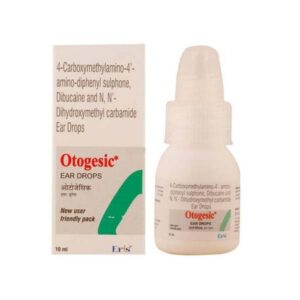CARBO + DIPUCAINE + CLYCERIN
Carbo: I apologize, but I couldn’t find any specific drug named “Carbo” in my database. It is possible that the drug name is misspelled or that it is not a well-known or widely used medication. Could you please provide more information or check the name again?
Dipucaine: Dipucaine is a local anesthetic drug that belongs to the group of ester-type anesthetics. It is primarily used for its analgesic properties and is commonly employed as a topical anesthetic.
The mechanism of action of dipucaine involves inhibiting the conduction of nerve impulses by blocking sodium channels in the nerve membranes. This action prevents the generation and propagation of pain signals, resulting in localized anesthesia.
Dipucaine is available in various forms, including creams, ointments, and sprays. It is typically applied to the skin or mucous membranes prior to minor surgical procedures, such as suturing wounds or removing skin lesions. It can also be used to relieve pain and itching associated with hemorrhoids.
The dose of dipucaine depends on the specific formulation and the area to be anesthetized. It is important to follow the instructions provided by the healthcare professional or the product labeling. Typically, a thin layer of cream or ointment is applied to the affected area, and the dosage should not exceed the recommended limit.
While dipucaine is generally well-tolerated, it may cause some side effects. These can include mild skin reactions like redness, itching, or swelling at the application site. Allergic reactions, including rash, hives, or difficulty breathing, are rare but possible. Prolonged or excessive use of dipucaine can lead to systemic toxicity, characterized by symptoms such as dizziness, confusion, convulsions, or cardiac disturbances, which may require immediate medical attention.
It is important to consult with a healthcare professional before using dipucaine, especially if you have any known allergies or underlying medical conditions. They can provide specific instructions and determine if dipucaine is suitable and safe for your individual circumstances.
Clycerin: I assume you meant Glycerin (also known as glycerol). Glycerin is a medication that can be used orally or topically for various purposes. Here is more information about it:
Use: Glycerin has multiple uses in the medical field. It acts as a laxative when taken orally, helping to relieve occasional constipation. It can also be applied topically to treat dry skin conditions, such as eczema or psoriasis.
Mechanism of action: When taken orally, glycerin works by drawing water into the intestines, which softens the stool and promotes bowel movements. When applied topically, it moisturizes the skin by attracting and retaining water, improving hydration and preventing dryness.
Dose: The oral dosage of glycerin as a laxative varies depending on the product. It is available in the form of a solution to be taken by mouth or rectally. The usual dose for adults is 15-45 mL (milliliters) taken orally or inserted rectally as a suppository. However, it is important to follow the instructions provided by your healthcare provider or the packaging instructions.
As a topical medication, apply a thin layer of glycerin to the affected area as frequently as needed or as directed by your healthcare provider.
Side effects: Some common side effects of glycerin include diarrhea, abdominal cramps, bloating, and gas when taken orally. These effects are usually mild and resolve on their own. Allergic reactions, such as rash or itching, can occur when applied topically. If any severe side effects or allergic reactions occur, it is important to seek medical attention immediately.
It is worth noting that individual responses to medications can vary, so it is advisable to consult a healthcare professional or pharmacist for personalized advice and dosage instructions based on your specific medical condition.

